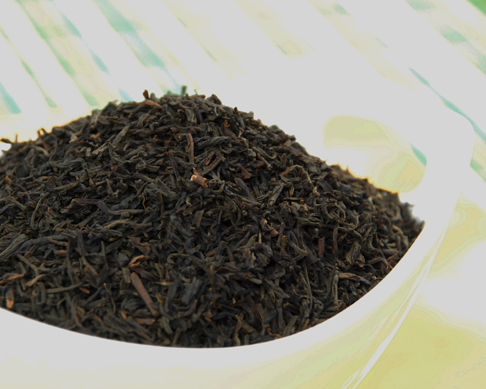-
Description
-
Tasting Notes
-
Brewing Guide
<
>
|
Keemun black tea is a fairly new tea that didn't exist before 1875. A former civil servant named Yu Ganchen had learned the secrets of black tea production in Fujian Province and brought this knowledge to the Anhui region and shared it with the local tea farmers there. Keemun quickly became the primary tea export of the late 19th century imperial China.
Keemun may not have been the first Chinese black tea to be produced or exported, but it certainly gained a solid reputation in the West as one of China's best black teas. Generally speaking there are three prominent types of black teas that are believed to possess the most intense fragrance of all black teas worldwide: Keemun black tea, Darjeeling tea and Ceylon tea. Our Keemun black tea will have bright, yet deeply dark leaves, which will be very slim and tight. Looser and coarser leaves generally are found in lower quality teas. The aroma of our Keemun black tea is complex with fruity undertones and floral depth (although not as flowery as Darjeeling tea), which creates a distinctively smooth, mellow, and well balanced flavor with little to no astringency. While some like to serve this with milk others prefer a slice of lemon and honey, instead of sugar, to sweeten. In China, Keemun is typically drunk straight without milk or sugar. |
Region: Keemun, Anhui Province, China
Dry Leaves: Wiry, very small, neat
Flavor: Distinctively smooth, full bodied and mellow
Aroma: Aromatic, complex with fruity undertones and floral depth
Liquor: Deep copper liquor tinged with crimson
Dry Leaves: Wiry, very small, neat
Flavor: Distinctively smooth, full bodied and mellow
Aroma: Aromatic, complex with fruity undertones and floral depth
Liquor: Deep copper liquor tinged with crimson
We selected our Keemun for its heavier, deeper character. As a breakfast tea, it can be brewed to upwards of five minutes and can (if you like) be served with a bit of milk and sugar. We prefer a more straightforward approach, steeped in either a gaiwan or a small tea pot.
To do so, use 3.5 grams of tea leaves, brewed at 212 °F /100 °C. Give the tea an initial 1 second rinse, then proceed to steep for 1 minute 30 seconds. Steep the second infusion for 1 minute 20 seconds. For subsequent brews, increase steep time in 30 second increments.

